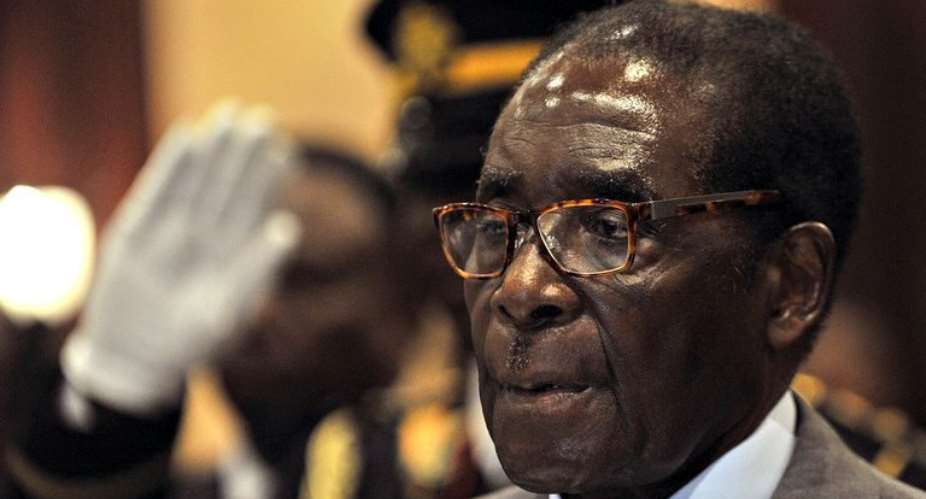HARARE (AFP) - Zimbabwe President Robert Mugabe's land reforms have cost the economy $12 billion in lost agricultural production over the past decade, the mainly white Commercial Farmers' Union said Wednesday.
The 87-year-old leader has publicly insisted that the land reforms aimed to correct colonial-era injustices by resettling blacks on white-owned land, and that no one should have more than one farm.
But CFU president Deon Theron said that Mugabe and his family now own 39 farms, according to a survey by the union.
"Records show that the majority of land has been given to senior politicians, senior members of the security forces, judges, so-called 'war veterans', civil servants, high-profile clerics and relatives of senior politicians," Theron said.
"For example, President Mugabe and his family own 39 farms," Theron said in the report.
Mugabe launched a land reform programme in 2000 which saw the seizure of more than 3,000 of the country's 4,500 white-owned farms by militant supporters of his party.
Once a food exporter, Zimbabwe has since relied on international aid to feed all of its people.
Theron blamed the land seizures for the collapse of Zimbabwe's economy over the past decade.
"Previously highly productive farms that have been acquired by the government are now producing either very little or nothing," he said.
"Sadly we will once again be unable to feed the nation, and will have to rely on costly imports while vast tracts of prime agricultural land lie unutilised."
The United Nations on Tuesday said Zimbabwe requires an additional $73 million in food aid to avert hunger caused by drought which affected several parts of the country.
Zimbabwe's needs had already been estimated at $415 million this year, but the drought has worsened food shortages in parts of the country, the United Nations said.
© 2011 AFP





 This IMANI job no dey pap; the people you are fighting for are always fighting y...
This IMANI job no dey pap; the people you are fighting for are always fighting y...
 Prof. Naana Opoku-Agyemang has changed; you can see a certain sense of urgency –...
Prof. Naana Opoku-Agyemang has changed; you can see a certain sense of urgency –...
 MFWA Executive Director slams Akoma FM for engaging in ‘irresponsible’ media pra...
MFWA Executive Director slams Akoma FM for engaging in ‘irresponsible’ media pra...
 ‘Women must become millionaires too’ — Prof Jane Naana on establishment of Women...
‘Women must become millionaires too’ — Prof Jane Naana on establishment of Women...
 Some believe only in Ghanaian votes, not Ghana — Kofi Asare jabs politicians
Some believe only in Ghanaian votes, not Ghana — Kofi Asare jabs politicians
 Plan to make BEST sole aggregator of Sentuo Oil Refinery will create market chal...
Plan to make BEST sole aggregator of Sentuo Oil Refinery will create market chal...
 2024 elections: I can't have the man I removed from office as my successor — Aku...
2024 elections: I can't have the man I removed from office as my successor — Aku...
 2024 Elections: Immediate-past NPP Germany Branch Chairman garners massive votes...
2024 Elections: Immediate-past NPP Germany Branch Chairman garners massive votes...
 Gov’t focused on making Ghana energy self-sufficient, eco-friendly – Akufo-Addo
Gov’t focused on making Ghana energy self-sufficient, eco-friendly – Akufo-Addo
 April 25: Cedi sells at GHS13.74 to $1, GHS13.14 on BoG interbank
April 25: Cedi sells at GHS13.74 to $1, GHS13.14 on BoG interbank
